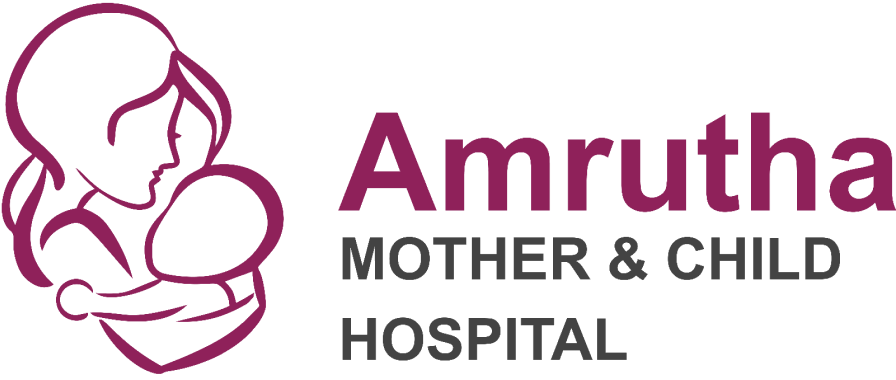

General Pediatrics and Vaccination Hospital In Kakinada
General pediatrics provides comprehensive healthcare for children, including routine check-ups, preventive care, and vaccinations. These services aim to monitor a child's growth, development, and overall health while offering protection against common illnesses through timely immunizations.
Procedures in Pediatrics and Vaccination in Kakinada
1. General Pediatrics
General pediatrics focuses on the overall health, growth, and well-being of children from birth through adolescence. Our Pediatrics and Vaccination in Kakinada services include::
- Routine Check-ups: Regular physical exams to monitor growth, development, and overall health. These include measuring height, weight, and head circumference, as well as checking vital signs.
- Assessment of Developmental Milestones: Pediatricians assess cognitive, motor, and emotional development through age-appropriate screenings and evaluations.
- Diagnostic Testing: When necessary, blood tests, urine tests, X-rays, or other diagnostic tools are used to detect infections, genetic disorders, or chronic conditions.
- Management of Acute and Chronic Illnesses: Pediatricians diagnose and treat conditions such as infections, respiratory illnesses, allergies, and chronic conditions like asthma or diabetes.
- Health Education: Providing parents with guidance on nutrition, sleep, safety, and age-appropriate physical and mental activities to support optimal growth and development.
2. Vaccination
Vaccination is a critical component of pediatric care, aimed at preventing the spread of infectious diseases and promoting long-term health. The vaccination process typically includes the following steps:
- Pre-Vaccination Screening: Before administering any vaccines, pediatricians assess the child’s medical history, allergies, and previous vaccinations to ensure safety.
- Administration of Vaccines: Vaccines are typically given through injections, oral doses, or nasal sprays. Common vaccines include those for diseases such as measles, mumps, rubella, polio, hepatitis, and diphtheria.
- Monitoring for Side Effects: After vaccination, children are typically observed for a short period to monitor for any adverse reactions, such as swelling or mild fever.
- Record Keeping: Vaccination records are maintained to ensure the child receives all recommended vaccines on time. Pediatricians may also provide parents with a vaccination schedule for future doses.
- Follow-Up: In some cases, booster doses may be required at specific intervals to maintain immunity. Pediatricians ensure that children receive these doses according to national health guidelines.
Key Considerations in Pediatrics and Vaccination in Kakinada
- Early Detection and Monitoring of Health Conditions: Routine pediatric check-ups are essential for identifying early signs of health issues such as developmental delays, growth problems, or chronic conditions. Regular monitoring ensures timely intervention and better health outcomes for children.
- Vaccination Schedules: Following the recommended vaccination schedule is crucial for preventing serious childhood diseases. Timely vaccinations protect children from diseases like measles, mumps, rubella, and whooping cough, safeguarding both individual and public health.
- Nutrition and Growth Assessment: Proper nutrition is vital for a child’s growth and development. Pediatricians assess dietary habits, growth patterns, and recommend supplements or adjustments to ensure healthy development, preventing issues like malnutrition or obesity.
- Parental Education and Guidance: Parents play an active role in their child’s health and development. Pediatricians provide education on topics like child safety, sleep habits, emotional development, and managing common illnesses, empowering parents to make informed decisions.
- Managing Chronic and Acute Conditions: Effective management of chronic conditions (like asthma, diabetes, or allergies) and acute illnesses (such as infections or injuries) is a key responsibility of pediatricians. Developing personalized care plans ensures that children receive appropriate treatments and interventions for optimal health management.
Frequently Asked Questions (FAQs) about General Pediatrics and Vaccination
- What does a pediatrician do?
A pediatrician is a doctor who specializes in the care of infants, children, and adolescents. They manage general health, growth, development, and treat common illnesses and conditions in children. - When should I schedule my child’s first pediatric visit?
The first pediatric visit is typically scheduled within the first week after birth to ensure the baby is healthy and to address any concerns parents may have. - What are the routine pediatric checkups for children?
Pediatric checkups usually occur at 2, 4, 6, 9, 12, 15, 18, 24, and 30 months, then annually after age 3. These visits include health screenings, developmental assessments, and vaccinations. - What is the importance of vaccinations for children?
Vaccinations protect children from serious diseases like measles, polio, and whooping cough, preventing the spread of infections and safeguarding both individual and public health. - What vaccines should my child receive and when?
Common vaccines include those for diphtheria, tetanus, whooping cough, MMR (measles, mumps, rubella), chickenpox, and the flu. The Centers for Disease Control and Prevention (CDC) provides a recommended vaccine schedule. - Are Vaccines Safe for Children?
Yes, vaccines are thoroughly tested for safety and effectiveness. Side effects are typically mild, such as redness or swelling at the injection site, and serious side effects are very rare. - What should I do if my child has a reaction to a vaccine?
Most vaccine reactions are mild. If your child experiences fever, swelling, or discomfort, treat them with rest, fluids, and fever-reducing medication as advised by your pediatrician. If you notice unusual reactions, contact your doctor immediately. - Can my child receive vaccines if they are sick?
Minor illnesses like a cold or mild fever are usually not a problem for vaccination. However, if your child has a moderate or severe illness, it may be recommended to reschedule the vaccine until they recover. What if I missed a vaccination for my child?
If you miss a vaccination, schedule an appointment with your pediatrician as soon as possible. Catch-up vaccines can be administered to ensure your child is up to date.- How can I support my child during vaccinations?
Stay calm and reassure your child before and after the shot. Distract them during the process with a favorite toy or video, and comfort them afterward with hugs or treats.
